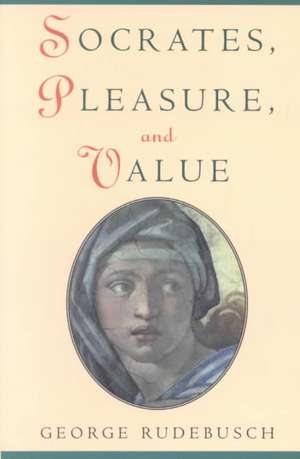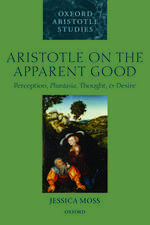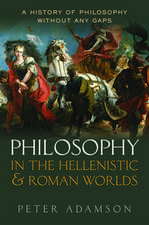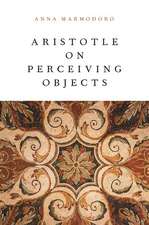Socrates, Pleasure, and Value
Autor George Rudebuschen Limba Engleză Paperback – 28 noi 2002
| Toate formatele și edițiile | Preț | Express |
|---|---|---|
| Paperback (1) | 217.11 lei 31-37 zile | |
| Oxford University Press – 28 noi 2002 | 217.11 lei 31-37 zile | |
| Hardback (1) | 418.27 lei 31-37 zile | |
| Oxford University Press – 30 sep 1999 | 418.27 lei 31-37 zile |
Preț: 217.11 lei
Preț vechi: 266.03 lei
-18% Nou
Puncte Express: 326
Preț estimativ în valută:
41.54€ • 43.38$ • 34.31£
41.54€ • 43.38$ • 34.31£
Carte tipărită la comandă
Livrare economică 04-10 aprilie
Preluare comenzi: 021 569.72.76
Specificații
ISBN-13: 9780195159615
ISBN-10: 0195159616
Pagini: 192
Dimensiuni: 231 x 155 x 8 mm
Greutate: 0.31 kg
Ediția:Revised
Editura: Oxford University Press
Colecția OUP USA
Locul publicării:New York, United States
ISBN-10: 0195159616
Pagini: 192
Dimensiuni: 231 x 155 x 8 mm
Greutate: 0.31 kg
Ediția:Revised
Editura: Oxford University Press
Colecția OUP USA
Locul publicării:New York, United States
Recenzii
"In this excellent book, Rudebusch pursues this question to the heart of Socrates' ethics and concludes that Socrates is indeed a hedonist of an unusual kind....Every page of this extraordinary book offers spare but subtle argument without embellishment or distraction--a model of philosophical writing. Certainly the best book on Socratic ethics. Strongly recommended for college and university libraries."--Choice













